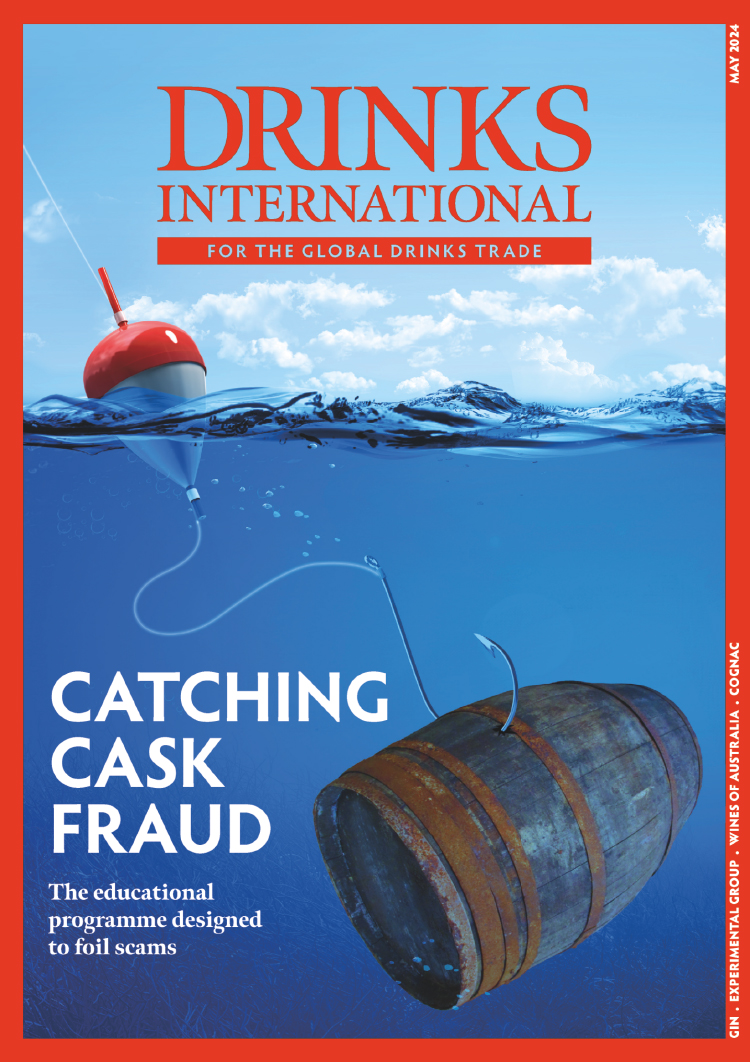From as early as the 17th century, Great Britain had begun importing and blending rums from the Caribbean, giving birth to some of the industry’s oldest and most recognisable brands. Rum was also a key part of the Royal Navy’s ration by the mid-19th century and the docklands of the River Thames were thriving under investment from the British rum industry. Fast forward more than 300 years and, comparatively, British rum is nowhere near as important for the economy. However, this is changing and in the 21st century brands are not only returning to blending and bottling, but actually distilling British rum too.
According to Statista Market Forecast, the UK rum market is projected to grow by 5.29% between 2023 and 2027, resulting in a market volume of US$2bn in 2027. Within these sales figures a significant proportion is spiced or flavoured rum, but today there’s an exciting group of distilleries within the British Isles making rum with a combination of tradition and innovation, although pioneering a movement is never easy.
“It’s a tough sell. We know we can’t compete with the Caribbean because it has the history and tradition, but what we can do is make our own style of well-made rum,” says Ian Warborn-Jones, co-founder of Outlier Distilling Company in the Isle of Man. Based in an old milking shed, Outlier produces overproof white rum from its wood-fired still.
Warborn-Jones adds: “The public perception of British rum is changing, but it’s not fully changed yet. We’re all being authentic in the way we make our rum but it’s difficult to convince people, because most still see rum as a tropical spirit from the Caribbean.”
Imported molasses
This correlation of rum and sandy beaches also clashes with the major trend of buying and consuming local produce. In the wet and windy UK, sugarcane is not a thing, therefore anyone making rum must import molasses, which to many consumers is a strange concept.
“Molasses tastes the same wherever it comes from,” adds Warborn-Jones. “Richard Seale (master distiller and blender at Foursquare in Barbados) is one of the biggest voices in the rum industry and his molasses doesn’t come from Barbados.”
Lewis Hayes, founder of Dropworks Distillery in Nottinghamshire, UK, believes that the practicality of using local molasses is also unrealistic for most traditional rum-making countries in the Caribbean.
“The facts are: rum must be made from sugarcane, but it doesn’t need to be made in a sugarcane-producing country or island,” says Hayes in the Dropworks online blog. “Even some of the most well-known rum distilling countries are importing molasses as they can’t grow the sheer volume of sugarcane demanded for their successful rum brands today. What was historically farmland may now be a golf course or a holiday resort, so even if there were a history of sugarcane farming in that area, plenty of the rums we love use imported molasses. It is just how the modern world works.”
Dropworks Distillery opened its doors to the public in July and is officially Europe’s largest rum distillery. The brand’s flagship rum, Clearworks, is an un-aged white rum made from molasses and sugarcane honey.
Local production
Peter Holland from The Floating Rum Shack told Nottinghamshire Live: “We know the general consumer’s appetite for rum is growing year on year in general – and specifically here in the UK for locally produced rum of character and authenticity, so it’s no surprise to me to see the scale of the endeavour being undertaken at The Dropworks. This facility is built to seize the moment and build for a bright future.”
Hayes adds: “When you deconstruct what makes a high-quality rum, our approach is very simple: the finest raw materials, fermented in a controlled (and sometimes deliberately otherwise) environment, using new and exciting strains of yeast and our own nurtured bacterial cultures, distilled on the highest specification stills, made to our bespoke designs, that are operated by our genius head distiller, before being matured in a vast array of different casks from all over the planet, and blended to a consistent, perfect, deliciousness.”
However just being authentic doesn’t pay the bills. The answer for making quick and easy money in the UK rum market isn’t unaged white rum, but spiced. In a report carried out by Campari Group UK two years ago, spiced rum was then beginning to take on significant market share from the rest of the rum sector, and this rise of spiced, botanical and flavoured rums isn’t likely to slow down anytime soon.
“Commercially we have to make one,” adds Warborn-Jones. “The plan is to have it ready for Christmas and as far as we’re concerned, with spiced rums consumers don’t care where the spices come from – it just has to taste good. It’ll be a strong rum like the rest of our range, but there’s also a chance we may have to do an entry-level one at 37% abv too because we can make more money, particularly with the new tax laws coming into play.
“We’ve sold nearly every litre we’ve made so far this year, but we haven’t made enough. We’ve been out there in the market meeting people and focusing on the brand, so we’re pretty well placed in the British rum scene. People know who we are and they understand what we’re trying to do. Ultimately, it’s a challenge. But once we have a spiced rum I’m confident everything will change.”
Even Dropworks, with its significant investments, has turned to the spiced rum market. The brand launched Spice Drop earlier this year and the difference is that, instead of adding spices, the rum is ʻflash aged’ with heavily charred American and French oak chips to produce a naturally occurring spice flavour.
In the 2010s, during the peak of the ʻgin bubble’, there were brands coming to market on a weekly basis. Many of these gins were an added revenue stream for craft whisky producers – an opportunity to make quick money while their passion project matured in casks. A similar thing is now happening with rum as producers turn to spiced expressions to maintain cash flow, while the British market comes to terms with locally made, authentic and innovative white rum.




